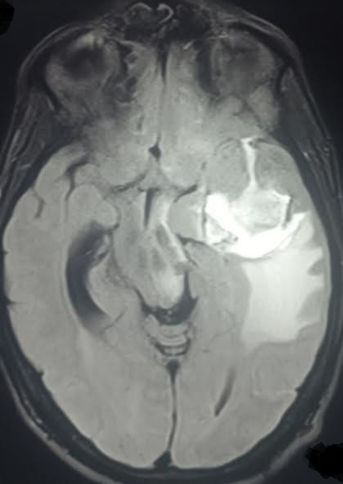What is Kluver-Bucy Syndrome?
Kluver-Bucy syndrome (KBS) is a mental health condition arising from damage to certain areas of the brain, notably the hippocampus and amygdala, which are located in the temporal lobes on either side of the brain. This condition often leads to a variety of behavioral changes.
Typical symptoms may include:
1. A strong urge to explore things with the mouth (hyperorality)
2. An increased interest in looking at and touching things, regardless of past experiences or potential rewards (hypermetamorphosis)
3. Increased sexual activity (hypersexuality)
4. Overeating (bulimia)
5. Extreme calmness
6. Difficulty recognizing visual objects (visual agnosia)
7. Memory loss (amnesia).
If a person experiences at least three of these symptoms, they are said to have a partial form of KBS.
The first report of symptoms now known as Kluver-Bucy syndrome was made by British neurologists Sanger Brown and Edward Albert Sharpey-Schäfer in 1888 based on their observation of changes in monkey behavior after removal of both of the temporal lobes. The syndrome was later fully defined by neuropsychologist Heinrich Kluver and neurosurgeon Paul Clancy Bucy in 1939. They were unaware of the earlier work when they detailed the behavior changes seen in a Rhesus monkey, named Aurora, three weeks after a similar surgical procedure. The first case of KBS in people was described in 1955 by Dr. Hrayr Terzian and Dr. Giuseppe Ore in a 19-year-old man who had had surgery to both temporal lobes because of seizures. Later, KBS was identified in a 22-year-old male patient who had experienced damage to both temporal regions of the brain due to herpes simplex meningoencephalitis, a type of brain infection. This case was reported by Marlowe and colleagues.
What Causes Kluver-Bucy Syndrome?
KBS, a medical condition, is known to be connected with various health problems. There are many instances where medical issues, extending from infections like shigellosis to withdrawal from substances like methamphetamine, are associated with KBS. However, the reasons why this happens are still not fully known.
Here are some conditions that have been linked to KBS:
1. Herpes simplex encephalitis (HSE) – a viral infection that causes inflammation in the brain
2. Stroke, specifically temporal lobe infarction – a stroke that affects the temporal lobe of the brain
3. Listeria meningoencephalitis – a type of brain infection
4. Traumatic brain injury – an injury to the brain caused by a severe blow or jolt
5. Central nervous system tuberculosis – tuberculosis that affects the brain or spine
6. Primary cerebral Whipple disease – a rare bacterial infection that can affect the brain
7. Alzheimer’s disease – a condition that affects the memory and other crucial mental functions
Other diseases that have been linked to KBS are Pick’s disease, hypoglycemia, acute sporadic porphyria, Huntington’s disease, juvenile neuronal lipofuscinosis, toxoplasmosis, epilepsy, Parkinson’s disease, heatstroke, shigellosis, methamphetamine withdrawal, systemic lupus erythematosus, anoxic-ischemic encephalopathy, Neurocysticercosis, Non-Hodgkin lymphoma, mycoplasmal bronchitis, Methotrexate leukoencephalopathy, subdural hygroma, Susac’s syndrome. KBS has also been associated with exposure to cannabis and anti-NMDAR encephalitis.
Most commonly, KBS is caused by head injuries and strokes in adults. In children, it’s most commonly caused by the viral infection known as herpes simplex encephalitis.
Risk Factors and Frequency for Kluver-Bucy Syndrome
It’s hard to determine the exact number of people affected by human KBS, as information about it mostly comes from individual case studies and reports.
Signs and Symptoms of Kluver-Bucy Syndrome
In adults, Klüver-Bucy syndrome (KBS) can manifest in the following ways:
- Hyperorality – This implies a strong and socially inappropriate desire to lick things or put things in the mouth.
- Hypersexuality – There might be a lack of sexual restraint, leading to inappropriate sexual behaviour, including attempts to have intercourse with inanimate objects.
- Eating disorder – Patients may frequently put objects in their mouths and explore them with their tongues, which could be a response to visual agnosia. There may also be instances of bulimia, an eating disorder characterised by episodes of binge-eating and then purging, which could lead to weight gain.
- Placidity – Sufferers may display a flat emotional response and reduced reaction to emotionally charged stimuli.
- Visual agnosia – Also known as psychic blindness, this refers to the inability to recognise familiar objects or faces visually.
The most common symptoms of KBS in adults are placidity, hyperorality, and changes in dietary behaviours.
In children, Klüver-Bucy syndrome usually arises as a secondary condition to herpes simplex encephalitis (HSE), with classic symptoms only presenting in a few cases. These include:
- Marked indifference
- Bulimia and hyperorality
- Lack of emotional attachment towards the family
- Hypersexuality, which might exhibit as:
- Frequent holding of genitals
- Intermittent pelvic thrusts
- Rubbing of genitals against the bed when lying face down

to herpes encephalitis
Testing for Kluver-Bucy Syndrome
The diagnosis of Kluver-Bucy Syndrome, or KBS, mostly relies on seeing how the patient’s symptoms match with the known features of the syndrome. Once it is identified, looking deeper and finding the factors or diseases causing it can help in effectively treating it.
Imaging tests like a brain MRI scan are helpful in detecting how much damage has been done to the temporal lobes of the brain. The temporal lobe is the part of the brain responsible for processing sensory input and assigning it emotional meaning, among other things. It is one of the areas most affected by KBS.
Another test that can be beneficial is the electroencephalogram, commonly known as an EEG. This test is used to check brain activity and can specifically identify if seizures, which are sudden episodes of uncontrolled electrical activity in the brain, are originating from the temporal lobe.
For conditions like head injuries that result in the patient losing consciousness for a long time, the Modified Innsbruck Remission Scale can be used. This scale helps in tracking and expressing the patient’s level of consciousness. It includes a phase where the features of Kluver-Bucy Syndrome may appear.
Treatment Options for Kluver-Bucy Syndrome
Treating Kluver-Bucy Syndrome (KBS), a rare neurological disorder that affects the ability to make decisions, can be difficult. This is mainly because there’s no specific treatment for KBS and each person with the condition may experience it in different ways. So, mostly, the focus of treatment is on managing the individual symptoms each patient has.
The primary medications that doctors often use in treating KBS symptoms include:
- Mood stabilizers: These medications help balance mood swings and prevent episodes of mania and depression.
- Antidepressants (specifically selective serotonin reuptake inhibitors): These medications help to counteract symptoms of depression by increasing the levels of serotonin, a chemical in your brain that impacts your mood.
- Antipsychotic drugs: These medications may help manage some of the emotional and behavioral symptoms of KBS.
- Carbamazepine: This is a medication primarily used to treat seizures but it has also been found beneficial in reducing abnormal sexual behaviours often linked with KBS.
- Leuprolide: This medication, which is more commonly used in treating disorders like prostate cancer and endometriosis, can also help to reduce abnormal sexual behaviours seen in individuals with KBS.
As part of managing the behavioral abnormalities associated with KBS, other drugs such as haloperidol and anticholinergics may also be used. Interestingly, studies have found that the use of Carbamazepine in patients with KBS, specifically those whose condition was triggered by traumatic brain injury, had improved outcomes.
Remember, every patient is unique, and these treatments may not be suitable for everyone. If you have KBS or a loved one with the condition, open conversations with your healthcare provider are key for finding the most appropriate treatment approach.
What else can Kluver-Bucy Syndrome be?
When diagnosing Kluver-Bucy syndrome (KBS), doctors need to ensure it’s not confused with other conditions that have similar symptoms. These conditions include:
- Alzheimer’s disease, which involves memory loss and personality changes
- Conditions causing hyperphagia, such as Prader-Willi syndrome and Kleine-Levin syndrome
- Frontotemporal degeneration, characterised by a progressive decline in intellect along with changes in behavior and personality
- Korsakoff syndrome, marked by poor memory, irritation, and personality changes
What to expect with Kluver-Bucy Syndrome
Some features of KBS, short for Kluver-Bucy Syndrome, such as hyperorality (a compulsive desire to put things in the mouth), placidity (unusually calm behavior), and hypermetamorphosis (an excessive interest in everything around), may continue indefinitely. However, other symptoms may slowly improve over several years.
The progression of KBS can vary greatly based on individual cases.
KBS that happens as a result of epileptic seizures, infections, or traumatic brain injuries may have a better outlook. This is because the damage caused by these conditions could potentially be reversed if identified early and managed properly.
Possible Complications When Diagnosed with Kluver-Bucy Syndrome
The patient may display a behavior termed as hyperorality and hypermetamorphosis, which involves the compulsive need to put any object they find in their mouth. This can potentially lead to hazardous situations.
Furthermore, due to hypersexuality, the patient might engage in sexual activities with strangers. This could result in legal trouble if there’s a lack of awareness about the patient’s medical condition.
Lastly, bulimia, a condition where a person excessively eats and then purges, may result in increased body weight, disrupted balance of body’s salts and minerals, and poor dental health.
Common Issues:
- Compulsively putting objects in the mouth
- Potentially engaging in sexual activity with strangers
- Legal troubles due to aforementioned behavior
- Weight gain due to bulimia
- Disturbance in body’s salts and minerals
- Poor oral hygiene
Preventing Kluver-Bucy Syndrome
It’s important to educate the family members of patients about their loved one’s condition. They need to understand that treatments don’t always guarantee success. It’s also crucial to inform them that there may be situations where the patient has to be physically restrained for their own safety.












